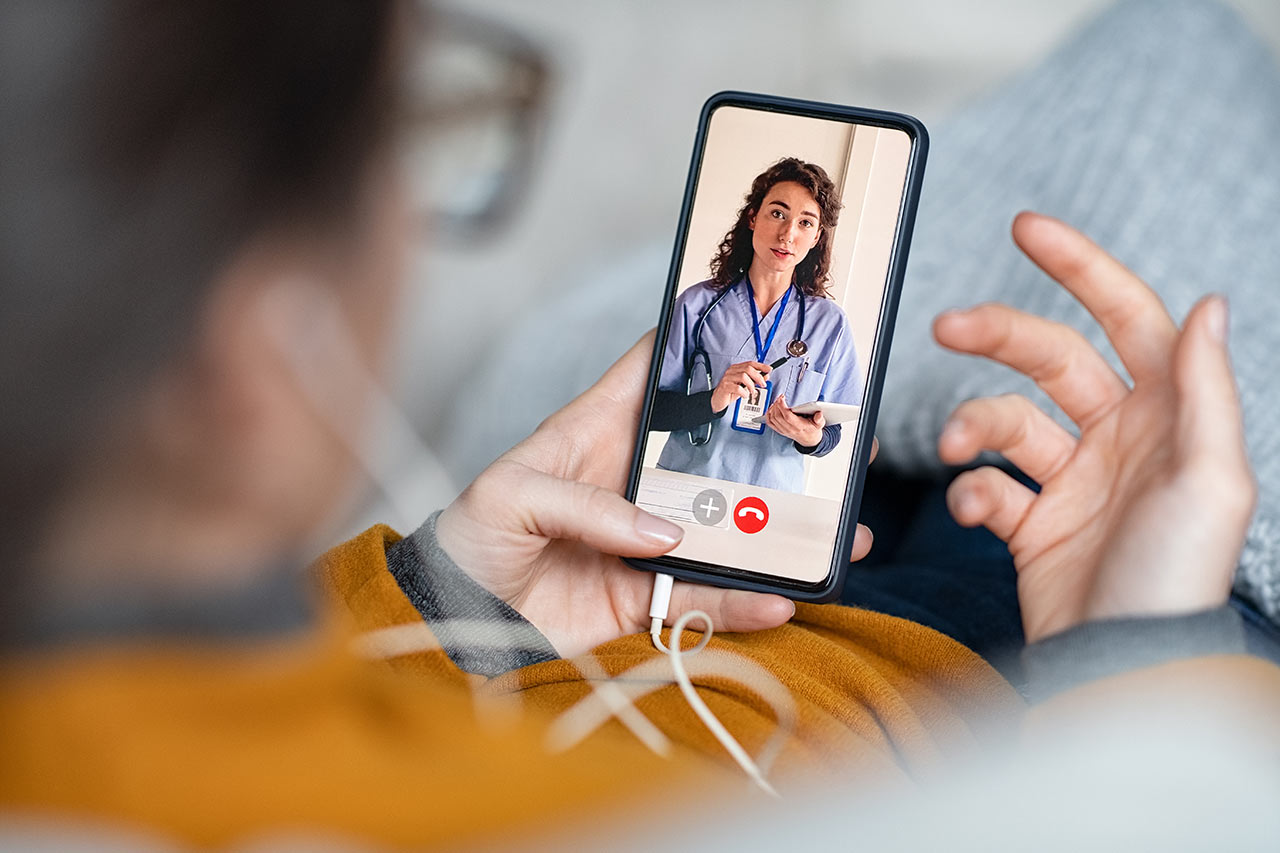Healthcare
Alcimed Position paper – DIGITAL HEALTH IN TIMES OF PANDEMICS
Alcimed Position Paper - DIGITAL HEALTH IN TIMES OF PANDEMICS: How will the Covid-19 crisis help build a new place for digital health?

The Healthcare sector is undergoing unprecedented disruptions, while rapid digital developments (the advent of 5G, the rise of artificial intelligence,…), changes in our lifestyles, and the aging of the population continue to blur the boundaries between sectors. With the onset of the COVID-19 health crisis, successive lockdowns and other social distancing measures have helped to further entrench digital technology in our daily lives. How do some unicorn companies transform the patient experience into healthcare?
This situation, marked by structural health and societal upheavals, has contributed to boosting the health sector, where tech players specializing in health but also in well-being have been established. These players are adopting the codes of mass consumption and successfully translating them – against a backdrop of digital innovation – to the world of healthcare. It is worth noting that these players are entering this new environment by promoting a concept that is unusual for the sector: the patient experience. This transposition of the customer experience to the patient pathway is proving to be a real growth driver.
It is in this context of disruption that Alcimed has selected 3 “unicorns”. These are unlisted startups with valuations exceeding one billion dollars and which are rapidly changing the rules of the game!
Doctolib, founded in 2013, is, alongside BlaBlaCar, Deezer and OVH, one of the rare unicorns of “French Tech” (a term used to designate the French start-up ecosystem). Doctolib’s platform enables patients to obtain and manage medical appointments online, and puts them in contact with more than 100,000 healthcare professionals.
In 2019 the start-up also launched an online consultation service that skyrocketed during the COVID-19 crisis. If Doctolib is so successful, it is because the platform appealed to its users by making the user experience extremely simple:
Doctolib’s case clearly illustrates the current phenomenon of consumerization of the care pathway. Patient-users now expect the same flexibility, simplicity, and speed from their care pathway that what is offered by other kinds of services: cabs on demand, ordering meals at home, booking deliveries within 24 hours at the click of a button… The care pathway thus becomes a customer experience, or a patient experience.
Hims is an online telemedicine startup launched in 2017 that now has reached unicorn status.
Hims not only offers online medical consultations, but also allows home delivery of prescribed treatments (pills, drops, creams, vitamin candies…). It addresses a wide range of health issues, but, among other things, it has become a specialized provider of solutions to very specific and little-discussed and often stigmatized problems. For example, it is possible to receive treatment for hair loss, erectile dysfunction, acne, and mental health.
The brand identity of the start-up is also carefully thought out: Hims is easily identifiable thanks to its choice of colors, its visual universe, as well as through the care given to the packaging. Each drug and dietary supplement is repackaged to match the brand’s visual identity. The start-up has also expanded thanks to quirky communication campaigns that have enhanced its notoriety.
Hims pays a lot of attention to its image, as the company considers that patients are nowadays able to make their own decisions regarding their healthcare services, and that for them, the brand image of healthcare providers is a priority. Indeed, the patient experience does not only consist in a fluid and efficient care pathway, but also in an alignment with the patient’s values.
Calm is an app intended for sleep and meditation. Launched in 2012, the application was originally positioned with a focus on meditation and mental well-being. Calm reached unicorn status in 2019, after a belated but very swift success thanks to the introduction of new original functions for aiding sleep. In 2020, in conjunction with the global COVID-19 crisis, its valuation doubled from 1 to 2 billion dollars. Indeed, the app is now considered to no longer be positioned solely on well-being, but also on mental health, a central concern due to the impact of isolation and continuous lockdowns on people.
The application is intended to be premium, with a minimalist and neat design, and putting forward illustrations with natural and soothing landscapes. It is also popular for its quirky touch: some of the content dedicated to sleep aid consists of parodies of existing artworks (e.g., the bedtime story called “Baa Baa Land” based on the film “La La La Land”, but with sheep) or surprising and comical original content (such as bedtime stories explaining in detail the GPDR, the rules of cricket…).
Calm, now clearly positioned on the issues of well-being and mental health, stands at odds with the historical healthcare players in its approach to the patient-user. The start-up does not rely on the classic codes of the Health and Pharma players, i.e., conventional visual identifiers and a formal tone used to convey an image of expertise, rigor, and reliability. On the contrary, just like Hims, Calm has adopted the codes of mass consumer apps to attract and retain its users.
New tech entrants are therefore approaching patients as demanding consumers and consider that the care pathway should be comparable to a seamless user experience. To meet the needs of their users, they offer fluid and targeted services that are increasingly efficient. Moreover, in this changing environment, the image of these players is becoming increasingly important as patients make better-informed decisions about their choice of health providers. As a result, their brand image is also a major priority for investment, in order to convince and retain users. This approach is enabling this new wave of tech players to stand out in the saturated healthcare sector, and to be the forerunners of tomorrow’s primary care services.
About the author
Amaia, Consultant in Alcimed’s Healthcare team in France